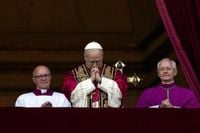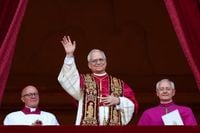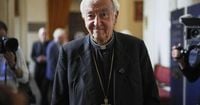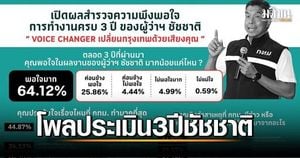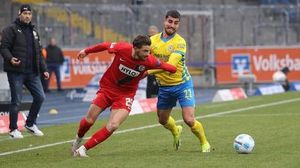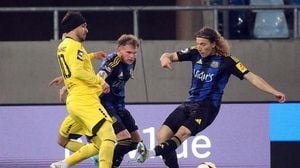On May 8, 2025, Robert Prevost was elected as the first North American pope, taking the name Pope Leo XIV, in a conclave that was described by Cardinal Vincent Nichols as a "fraternal" atmosphere, devoid of the high drama depicted in films.
The election, which saw a record number of 133 cardinals from 70 countries participating, concluded with white smoke billowing from the chimney of the Sistine Chapel shortly before 5 PM, signaling that a new pontiff had been chosen. The cardinals had been sequestered for over 24 hours, casting their votes in secret to select the leader of the 1.4 billion-member Catholic Church.
Cardinal Nichols, who led the Catholics in England and Wales, expressed his joy at the election, stating that the moment Cardinal Prevost accepted his election brought "elation." He noted that the new Pope is a "citizen of the world," bringing a wealth of experience as he has served as a teacher, a diocesan bishop, and a member of the Roman Curia.
During a press conference in Rome, Cardinal Nichols characterized Pope Leo XIV as gentle, calm, decisive, and unifying. "He can be decisive. I’ve seen him resolve difficulties in a way that didn’t leave enemies behind him and he can hold people together," he remarked.
As Pope Leo XIV took to the balcony of St. Peter's Basilica to address the crowd for the first time, he greeted them with the words, "Peace be with all of you." This gentle introduction set the tone for what many hope will be a papacy focused on peace, unity, and bridge-building.
In the lead-up to the conclave, some cardinals reportedly viewed the 2024 film "Conclave" as a research tool to understand the complexities of electing a new pope. Cardinal Nichols, however, emphasized that the real-life process was far less dramatic than portrayed in Hollywood.
Following the election, reactions poured in from various quarters. U.S. President Donald Trump expressed excitement over the election of a North American pope, stating it was a "great honor for our country." However, Trump also faced criticism after sharing an AI-generated image of himself as the pope prior to the conclave.
Vatican experts have speculated that Pope Leo XIV may present a "quite challenging" message to Trump, particularly given the pontiff's previous social media activity that included critical commentary on U.S. Vice President JD Vance. Professor Anna Rowlands, who met with Pope Leo shortly after his election, suggested that while the Pope is unlikely to be confrontational, the content of his discussions with the U.S. administration will be significant.
Rowlands, who previously spent two years seconded to the Vatican, noted that Pope Leo XIV will aim to engage in meaningful dialogue on issues of genuine human good and security in the world.
In addition to political leaders, messages of congratulations came from various religious figures and institutions. Prime Minister Sir Keir Starmer remarked that this was a "deeply profound moment of joy for Catholics in the United Kingdom and globally," highlighting the global significance of the new pontiff's election.
The Vatican has confirmed that Pope Leo XIV will be formally installed at a mass on May 18, 2025, marking the beginning of his official duties as the leader of the Catholic Church. Until then, he is continuing to engage with the faithful and the media, emphasizing his commitment to unity and peace.
As the world watches the new pontiff's actions and messages, many are hopeful that Pope Leo XIV will navigate the complexities of modern society with compassion and wisdom, embodying the values he has espoused even before his election.
In a lighthearted moment following the election, a New York bakery celebrated the occasion by creating cookies themed around the new pope, continuing a tradition they began with previous popes. The cookies, which are shortbread with icing bearing the image of Pope Leo XIV, quickly sold out, reflecting the enthusiasm surrounding the new papacy.
Overall, the election of Pope Leo XIV marks a significant moment in Catholic history, not only as the first North American pope but also as a leader who embodies a global perspective. With his gentle demeanor and commitment to dialogue, many are eager to see how he will address the pressing issues facing the Church and the world today.
